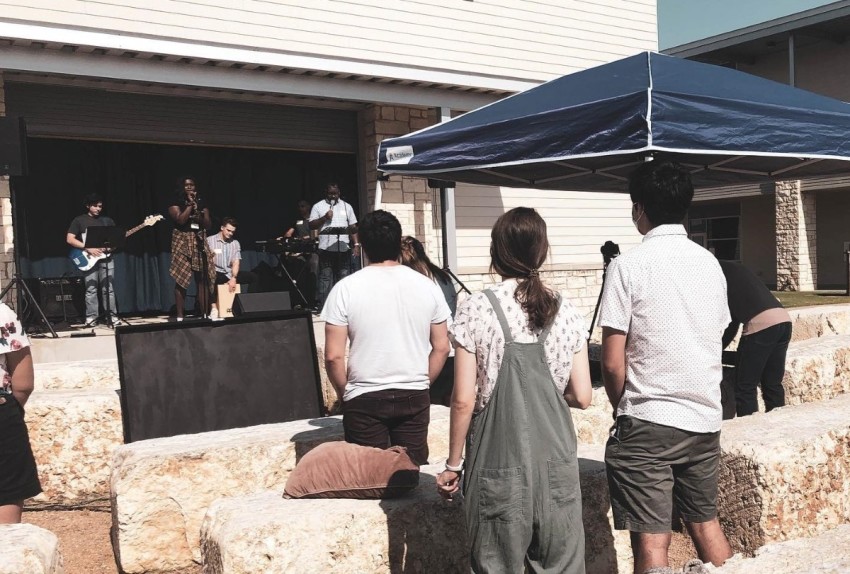Pastors of color form Crete Collective to bring Gospel to new urban generation
Raising funds for church plants in low-income areas

A multiethnic group of urban pastors is raising $2 million to bring new churches to impoverished communities of color, areas where evangelicals have planted few congregations in the last two decades, they lament.
“Since larger evangelical denominational networks are mostly Anglo-American, they think of their target audience as looking like them,” the Rev. Aaron Reyes, a board member of the Crete Collective, told The Christian Post. “That’s not sinful in itself but does miss out on making disciples of all nations, the Great Commission.”
The Crete Collective takes its name from Paul’s epistle telling Titus “to set in order the things that are lacking and appoint elders in every city” of Crete. Later in that chapter, the apostle says a poet from the island off Greece calls his own people liars, evil and lazy, and while that might be true, Titus is to lead so the elders will become faithful to Christ.
The collective contends that’s how many look at low-income, diverse neighborhoods. “Crete was likely the kind of place people avoided. Few would seek to go there,” its website states. “But God is different. God intends overlooked people and places to hear the good news of His love in Jesus Christ.”
The Crete Collective is headed by the Rev. Thabiti Anyabwile, senior pastor of Washington, D.C.’s Anacostia River Church. Also on its board are Pastors Jeremy McClain of Mercy of Christ Fellowship Church, also in the nation’s capital; Darryl Williamson of Living Faith Bible Church in Tampa, Florida; Louis Love Jr. of New Life Fellowship Church in Greater Chicago; John Onwuchekwa of Cornerstone Church of Atlanta; and Reyes of Hope Community Church in Austin, Texas. All are black except Reyes, a second-generation Mexican American.
“As America diversifies and grows in cultural populations, so should our evangelism, church-planting, and discipleship strategies,” stated Anyabwile, a one-time Muslim who came to Christ in the District of Columbia, in the announcement released on Nov. 19. “As the Christian church responds to rapidly changing demographics, the Crete Collective will specifically focus on communities of color.”
Of the 66 U.S. cities with more than 300,000 people, 70% became more racially diverse between 2010 and 2018, found U.S. News in using a USA Today-developed data program.
“We’re going to our own kind,” Reyes, whose church is predominantly Latino, told CP. “Planters of a demographic attract the same demographic. No one knows our communities better than us. Let’s not put in more time and effort trying to convince denominations to do this work.”
A Pew survey found that church attendance and Christian identification has declined for all races in the last decade, but African Americans topped both categories in 2019 (72% identify as Christian, 58% attend at least monthly). Latinos came next (72% Christian, 51% attending) and Caucasians third (65% and 42%, respectively).
Most of the money Crete Collective raises will go toward funding six church plants in the next two years in midsized or large urban areas. They could be in Seattle, Rockford, Illinois, or any number of towns that have low-income neighborhoods and sizable shares of people of color, including Asians.
“Certain segments of the Asian American community are much more financially well off … but that’s not true across the board,” Reyes said of including the group in the collective’s targeting, noting that “New York, for example, … has the greatest disparity between Asian communities; you have very wealthy Asian communities and you have very poor.”
The rest of the $2 million Crete Collective hopes to receive will be used to hire a small staff of telecommuting workers. The nonprofit has an application process for churches that might want to affiliate with it to express support, receive encouragement and counsel on how to reach young people of color, or help plant new works in their areas.
The collective has embraced the New Hampshire Statement of Faith of 1833, which is generally evangelical in character and allows Baptists, charismatics, Pentecostals and many other Protestants to affirm it in good conscience. “We don’t want the collective to only be one small strain of Christianity,” Reyes said.
The five pastors and their supporters also are making room for social justice to complement — not replace — evangelism. Reyes anticipates the Crete Collective will be addressing what they deem as policies disadvantaging ethnic groups in voting, taxation, zoning, treatment and protection by police, incarceration and immigration.
“The evangelical movement has responded in many opposing ways to the issue of justice,” he said. “Some see it as … caving into the modern world and society or that we’re buying into some extrabiblical analysis of the world, and because of that we’re saying the Bible is insufficient. We wholeheartedly disagree with our brothers and sisters in the Lord who have those positions. We don’t see justice as antithetical to the Gospel; we see it as part of the Gospel.”
The collective acknowledges there are racial minority-led churches already in diverse urban neighborhoods. However, its perspective is many of those congregations are older, struggling financially, and having difficulty with outreach, especially to youth and young adults.
A significant share of ethnically diverse churches have stopped holding in-person services due to COVID-19 disproportionately affecting people of color. Crete Collective leaders believe selecting cities, planters, buildings and more should take at least until summer 2021, when a vaccine should be widely available.
“If not, we have adjusted our own churches to COVID-19, and we can help planters with it,” Reyes asserted.



























